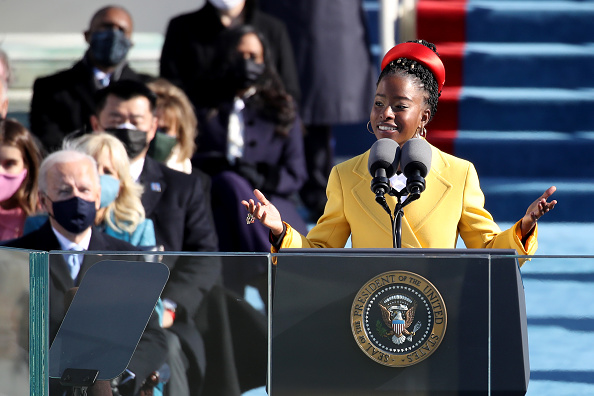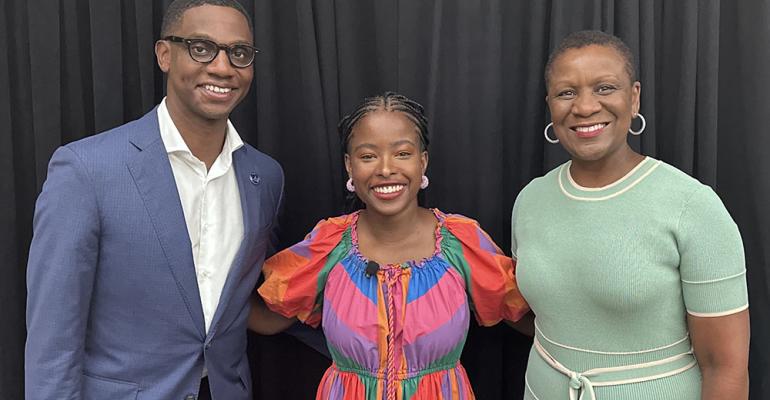While it’s most unusual for a 26-year-old to be considered a masterful and eloquent observer of humanity, Amanda Gorman is surely held in that regard. And if you want her to speak at your next big meeting … well, get in line.
One group that was able to land Gorman for a keynote slot was the American Society of Association Executives, which held its 5,000-person annual meeting from August 10 to 13 in Cleveland.
There, Gorman—America’s first National Youth Poet Laureate who presented her own poem, “The Hill We Climb,” at President Joe Biden’s inauguration when she was just 22—spoke to the association leaders and meeting planners in attendance on creating educational opportunities that work for everyone as well as communicating effectively themselves.
Although her main focus is inspiring those who face oppression and marginalization, Gorman’s perspective can serve anyone willing to approach their work with an open mind. Here’s what she shared with ASAE’s audience:
• “We all know at least one teacher who took an interest in you” and understand how validating and motivating that was, Gorman noted. “I was lucky to have more than one teacher who realized that I learned and communicated through poetry, and those teachers allowed me to do my assignments in that format rather than force me to conform" to a common style.
The lesson: Appreciate, allow, and tap into diverse learning styles as you create content and choose presenters for your sessions.
 • “People often say to me, ‘How do young people like you write such profound things,’” she recalled. “I then ask them, ‘You don’t remember Anne Frank and Frederick Douglass?’ It’s not so uncommon” for young people to have interesting perspectives when they are the product of different backgrounds and experiences.
• “People often say to me, ‘How do young people like you write such profound things,’” she recalled. “I then ask them, ‘You don’t remember Anne Frank and Frederick Douglass?’ It’s not so uncommon” for young people to have interesting perspectives when they are the product of different backgrounds and experiences.
The lesson: “The older generations should not seek to simply pass down wisdom—they should pass down power,” giving younger people not just responsibilities but also the agency and latitude to fulfill them in their own way.
• When trying to solve team, organizational, or community problems, Gorman said that “you can’t make progress without first acknowledging the injury or damage that’s been done” to a cause or to particular people.
The lesson: “Before you present your perspective, you must validate” those involved and what they have experienced. “Start your communication with goodwill. Speak from a place of care and build from there.”
• Gorman concluded with this: “When you are presenting, do not manicure out your own personality. Be yourself, because it is the one thing you can give that nobody else can.”
The lesson: Each person’s authenticity has unique value. Offer that to the people you work with and work for—and push your event presenters to do the same.





